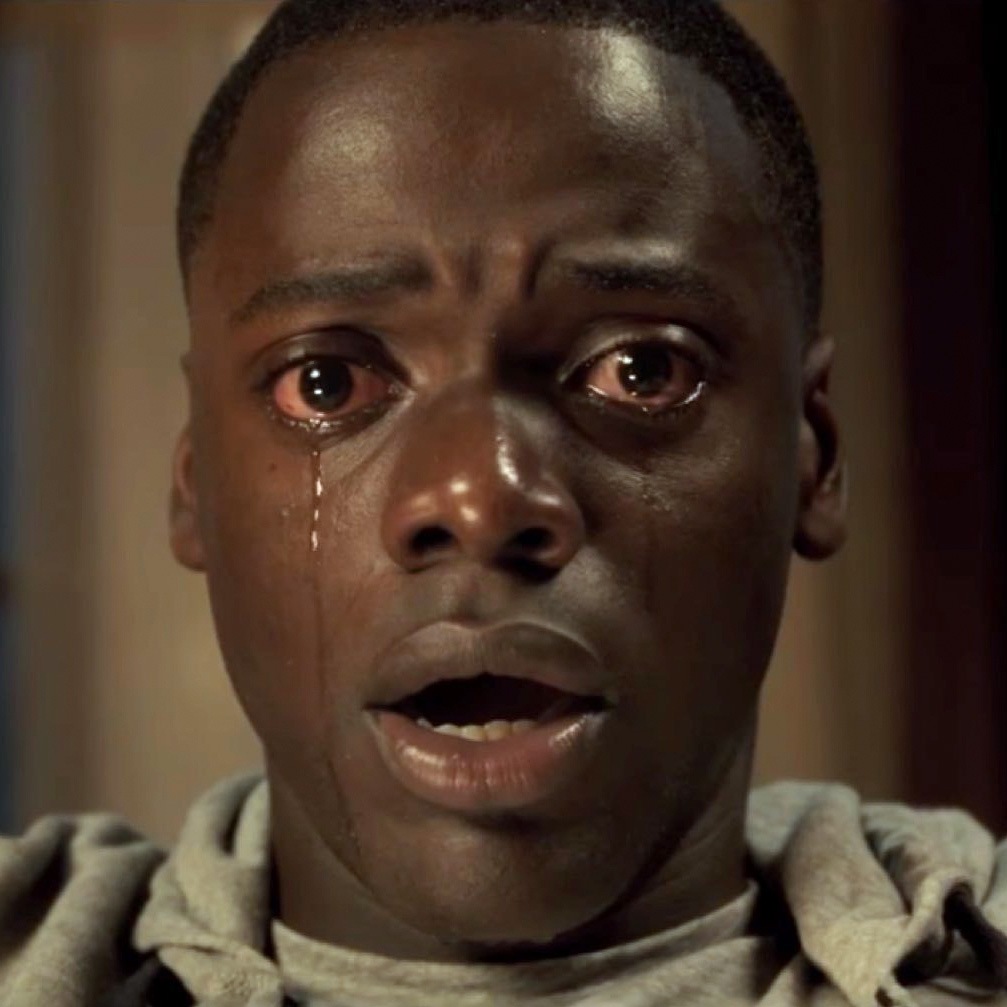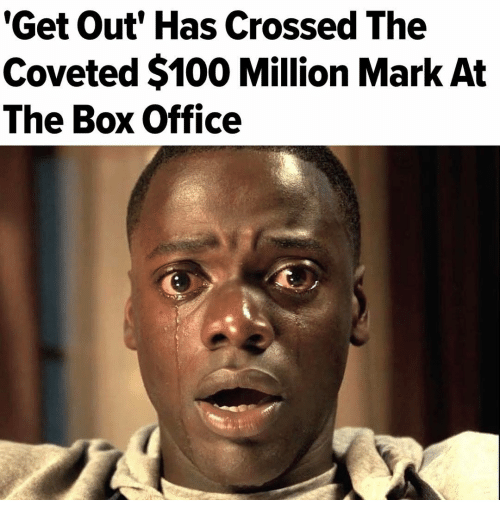"Get Out" Parody & More: Discover The Best GIFs & Memes!
Can a film genuinely capture the zeitgeist, reflecting and refracting the anxieties of a society? Jordan Peele's "Get Out" didn't just capture the moment; it became the moment, a cultural touchstone that continues to resonate years after its release.
The year was 2017. A nation, already grappling with complex social and political tensions, found itself captivated by a horror film that wasn't just about jump scares, but about the insidious nature of racism, microaggressions, and the unsettling feeling of being an outsider in your own skin. "Get Out," released in the U.S. on February 24th, 2017, quickly transcended its genre, becoming a cultural phenomenon. The film's impact was immediate and undeniable, evidenced by its phenomenal success at the box office and its impressive 99% rating on Rotten Tomatoes.
The film, a masterful blend of horror, thriller, and social commentary, follows Chris Washington, played brilliantly by Daniel Kaluuya. Chris, a young Black man, accompanies his white girlfriend, Rose Armitage, to her family's estate. What begins as a seemingly innocent weekend getaway soon unravels into a nightmare of sinister secrets and chilling revelations. As Chris tries to connect with Georgina (Betty Gabriel) and navigates the unsettling atmosphere of the Armitage household, he begins to sense that something is deeply wrong. When Chris goes out to smoke, he realizes something weird is happening in the Armitage household when Walter runs right towards him. The film masterfully builds suspense, playing on the viewer's unease and anticipation.
Catherine Keener's portrayal of Rose's mother, who hypnotizes Chris, is chillingly effective, adding another layer of dread to the unfolding narrative. Peele's screenplay is sharp, witty, and deeply insightful, dissecting the subtle ways in which racial prejudice can manifest itself. The film doesn't shy away from uncomfortable truths, forcing viewers to confront the complexities of race and power in America.
The film's influence extended far beyond the silver screen. "Get Out" inspired the viral #getoutchallenge meme, a testament to its powerful impact on popular culture. The film also generated countless animated GIFs, shared widely across platforms like Tenor and Giphy, further cementing its place in the digital lexicon. Discovering and sharing these "Get Out" gifs became a way for fans to express their reactions, and engage with the film's themes in a light-hearted, yet meaningful way. These GIFs, often showcasing moments of suspense or humor, found their way into conversations, making them more expressive and relatable.
The film's ability to provoke thought and conversation is undeniable. It's a film that stays with you long after the credits roll, prompting reflection on issues of identity, perception, and the enduring legacy of racism. As @pusha_teewat's parody of various Twitter accounts devoted to classic movies demonstrates, "Get Out" is also a film that lends itself to creative interpretations and analyses.
The genius of "Get Out" lies in its ability to be both entertaining and thought-provoking. It's a horror film that genuinely scares, while simultaneously delivering a sharp critique of society. The film uses the conventions of the genre to create a sense of paranoia and dread, mirroring the lived experiences of many people of color. Chris's struggle to understand the strange happenings at the Armitage house, culminating in his attempts to gather evidence using his cell phone, resonates powerfully with audiences.
The movie's enduring popularity is further emphasized by the ease with which its iconic moments can be shared and re-contextualized. Through platforms like Giphy, audiences can discover and share "Get Out" animated GIFs, encapsulating the film's most memorable scenes and emotional beats. These visuals allow for a continuation of the dialogue generated by the movie, making its themes and ideas even more pervasive in the digital landscape.
The film's success is a testament to the power of storytelling and its ability to address complex social issues in a compelling and accessible way. The enduring legacy of "Get Out" serves as a reminder of the importance of dialogue, empathy, and the courage to confront difficult truths.
The film's impact on the film industry is undeniable, ushering in a new era of socially conscious horror and opening doors for other filmmakers of color. "Get Out" serves as a prime example of how genre films can be used to explore pressing societal issues. The films ability to be both entertaining and socially relevant helped redefine what horror could be, moving beyond traditional tropes to engage with deeper, more meaningful themes.
The films cultural footprint continues to expand, and the easy availability of related content online, such as the use of instant sound buttons, further reinforces this trend. For those seeking to relive the film's most iconic moments, the ability to listen and share sounds from the movie, for example, Tuco's signature phrase, or the use of "Get Out" sounds loud, provides fans another level of interaction with the source material. The integration of such interactive elements solidifies the movie's position as a multimedia sensation, allowing fans to engage and re-engage with the content in a variety of ways.
The movies ability to provoke conversation continues. The accessibility of memes, gifs, and the ability to share various elements across social media and other platforms, enables audience members to take a deeper dive into the movies content. Whether it's creating a meme, making a gif, or simply sharing a chart, the movie is continually reinterpreted, giving audiences multiple ways to relate and connect with the movie. The "crying Chris" animated gif, for instance, helps viewers express a wide range of emotions about the film, further solidifying its position in popular culture. The movie's creative flexibility has allowed audiences to experience the film in multiple ways, keeping its popularity robust in modern times.
The impact and influence of the movie can be observed in the wider sphere, the way in which the media adapts to reflect popular culture. The use of sites like imgflip, which is a database, encourages viewers to participate in the meme-making process. The fact that sites like these have become so popular with the audience exemplifies the extent of the movie's influence, as well as the cultural conversations it encourages.
In summary, "Get Out" is more than just a film; its a cultural landmark, a social commentary, and a cinematic achievement that continues to resonate with audiences. It's a film that deserves to be seen, discussed, and re-examined, not only for its technical brilliance but also for its enduring relevance. The movies ability to provoke conversation, coupled with its innovative approach to storytelling, ensures its place in cinematic history. The films resonance is not only in the film world, but also in the broader culture, where it continues to engage audiences. This helps explain how the film has managed to have such an immense impact on society, and why it continues to be talked about and shared to this day.
The film continues to spark conversations, inspire creativity, and challenge viewers to think critically about the world around them. The film is a truly exceptional piece of cinema. It is a film that will be discussed and dissected for generations to come.


